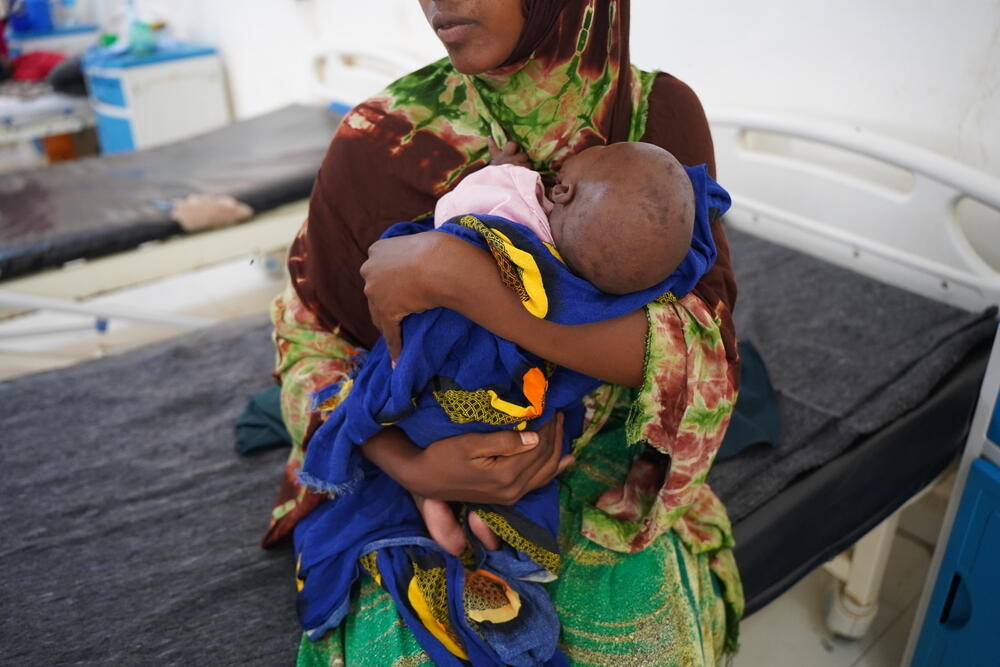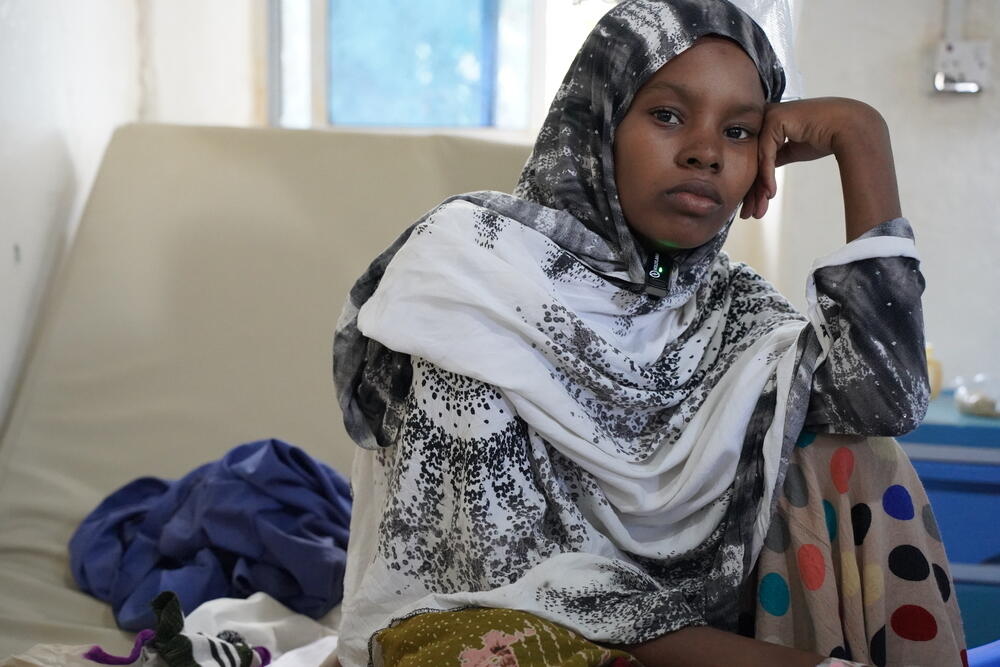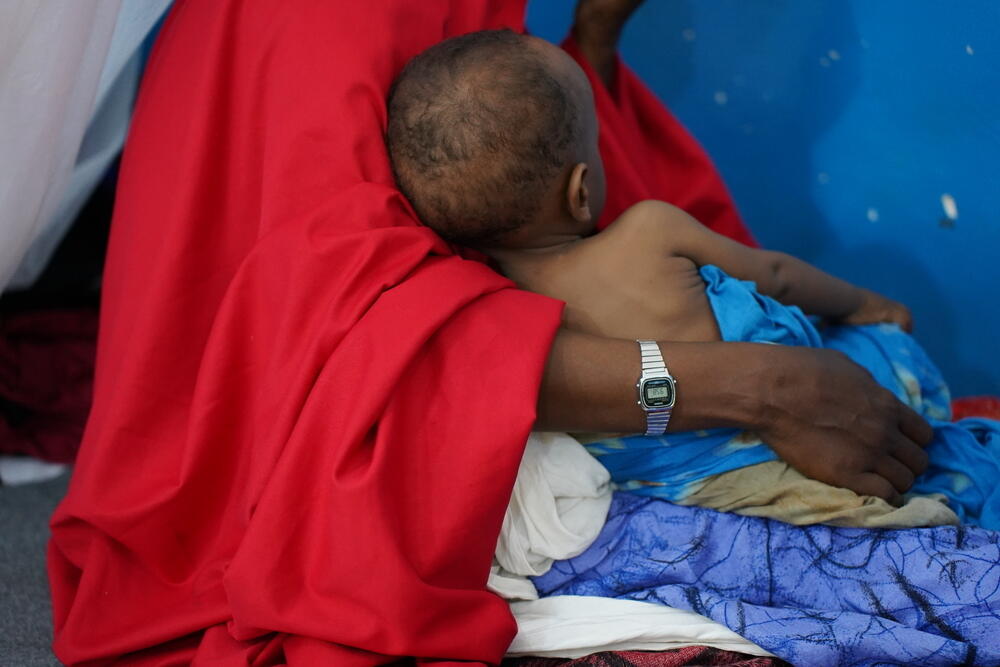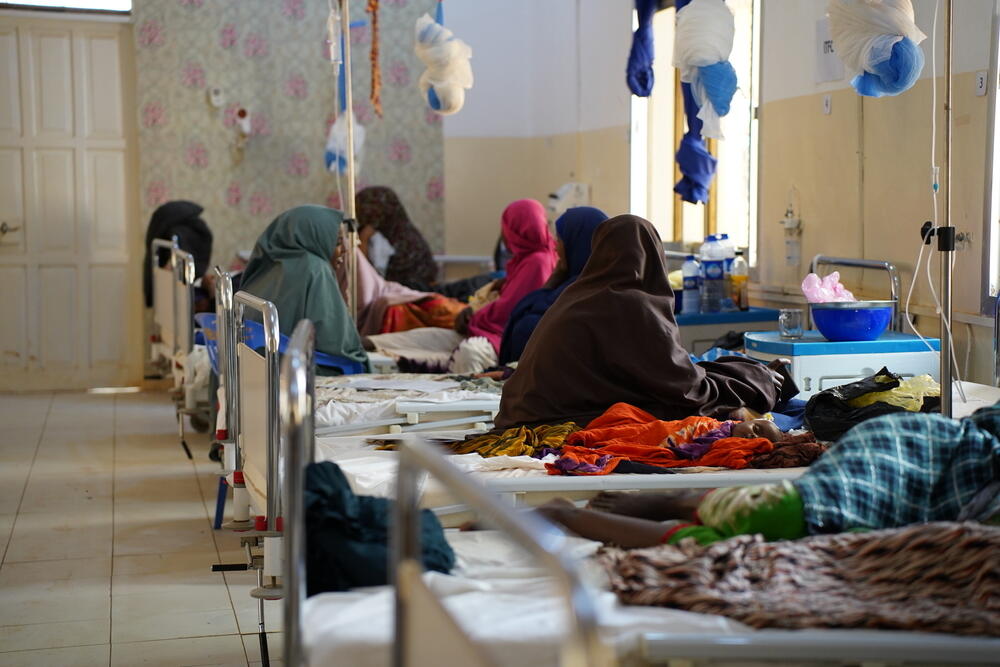Somalia: How Funding Gaps and Limited Access to Care Are Deepening Baidoa’s Health Crisis for Women and Children
13 August 2025
When Aisha* began haemorrhaging, experiencing heavy, potentially life-threatening bleeding, just ten days after giving birth to twins at home in Diinsoor district, her family feared the worst. The hospital where she had safely delivered her previous children was no longer operational. With limited healthcare available in their community, her husband urgently borrowed money and drove five hours through the night to reach the MSF-supported Bay Regional Hospital in Baidoa, one of the few facilities offering free, quality maternal and paediatric care. Medical teams quickly stabilized Aisha, successfully treating her severe bleeding.
Limited access to healthcare leads to patients arriving at hospitals with severe complications, sometimes resulting in preventable maternal and neonatal deaths. Insecurity, scarce healthcare services, and logistical challenges further hinder access to timely care. Cultural norms such as requiring male consent for surgical interventions add critical delays when immediate action is necessary. Furthermore, health-seeking behaviours present significant challenges.
Stories like Aisha’s* are all too common across Somalia’s Southwest State, where women and children often travel hundreds of kilometres seeking lifesaving medical care. Those unable to afford the journey face severe consequences.
Hawa, an 18-year-old mother of two, delivered her first child at age 16 at home with only relatives present. “We don't have hospitals or doctors nearby,” she explains. After her second childbirth, she experienced serious complications including swelling and cardiac issues. Determined, she travelled to Baidoa for treatment. Now recovering, Hawa voices a widespread hope: “We need a hospital in our area and doctors who can come to us.”
Multiple factors hinder access to care. Poverty, insecurity, distance, and cultural barriers all significantly delay treatment. Hassan, a 28-year-old father from Afurow village, tragically lost his wife during childbirth at home due to the absence of health facilities and skilled birth attendants. Left alone with a newborn son who soon fell critically ill, Hassan struggled helplessly. “He had diarrhoea and vomiting. Medicines from local pharmacies didn’t help,” Hassan recalls. After two months of deteriorating health, he learned of MSF’s free services in Baidoa. “I borrowed about $130 and travelled 150 kilometres to reach Baidoa hospital,” he explains. What began as a desperate situation has turned into hope, as his son receives essential treatment and nutritional care.
MSF has been supporting Bay Regional Hospital since 2017, providing emergency obstetric, neonatal, paediatric, and nutritional care. In 2024 alone, MSF treated over 14,000 children for malnutrition, conducted more than 38,000 paediatric consultations, assisted over 2,800 births, and carried out approximately 35,000 reproductive health consultations all free of charge. Yet despite these efforts, the region’s maternal and child health situation remains critical, especially after recent funding cuts.
The suspension of USAID funding has led to the closure of at least 37 health and nutrition sites in both rural and urban areas around Baidoa. Consequently, patient numbers at remaining facilities like Bay Regional Hospital have surged, overwhelming an already fragile healthcare system.
From January to June 2025, MSF teams at Bay Regional Hospital treated 11,894 malnourished children, an increase of 76 per cent compared to the same period last year. This significant surge in malnutrition admissions, along with rising cases of maternal health complications, underscores the urgent need for sustainable and efficient funding to restore and expand essential services, especially in underserved rural communities.
Dr. Kayembe emphasizes that while MSF continues delivering lifesaving care, broader systemic support is vital: “The scale of the need demands sustained, long-term investment and strategic support across Somalia. We urge donors and humanitarian partners to prioritize expanding primary and emergency maternal and paediatric healthcare, particularly in remote areas.”
Inside Bay Regional Hospital’s busy wards, newborns take their first breaths under skilled supervision, malnourished children gradually regain health, and frightened mothers find relief and hope. As Dr. Kayembe concludes, “It’s not just about responding to immediate crises. It’s about ensuring families survive, recover, and rebuild their lives starting with dignified, quality healthcare for all.”
*All patient names have been changed to protect privacy
MSF in Somalia
Médecins Sans Frontières/Doctors Without Borders (MSF) returned to Somalia in May 2017, four years after a series of violent attacks on our staff forced us to withdraw. Since then, our work has focussed on assisting people affected by conflict and extreme weather patterns like prolonged droughts and seasonal floods.




